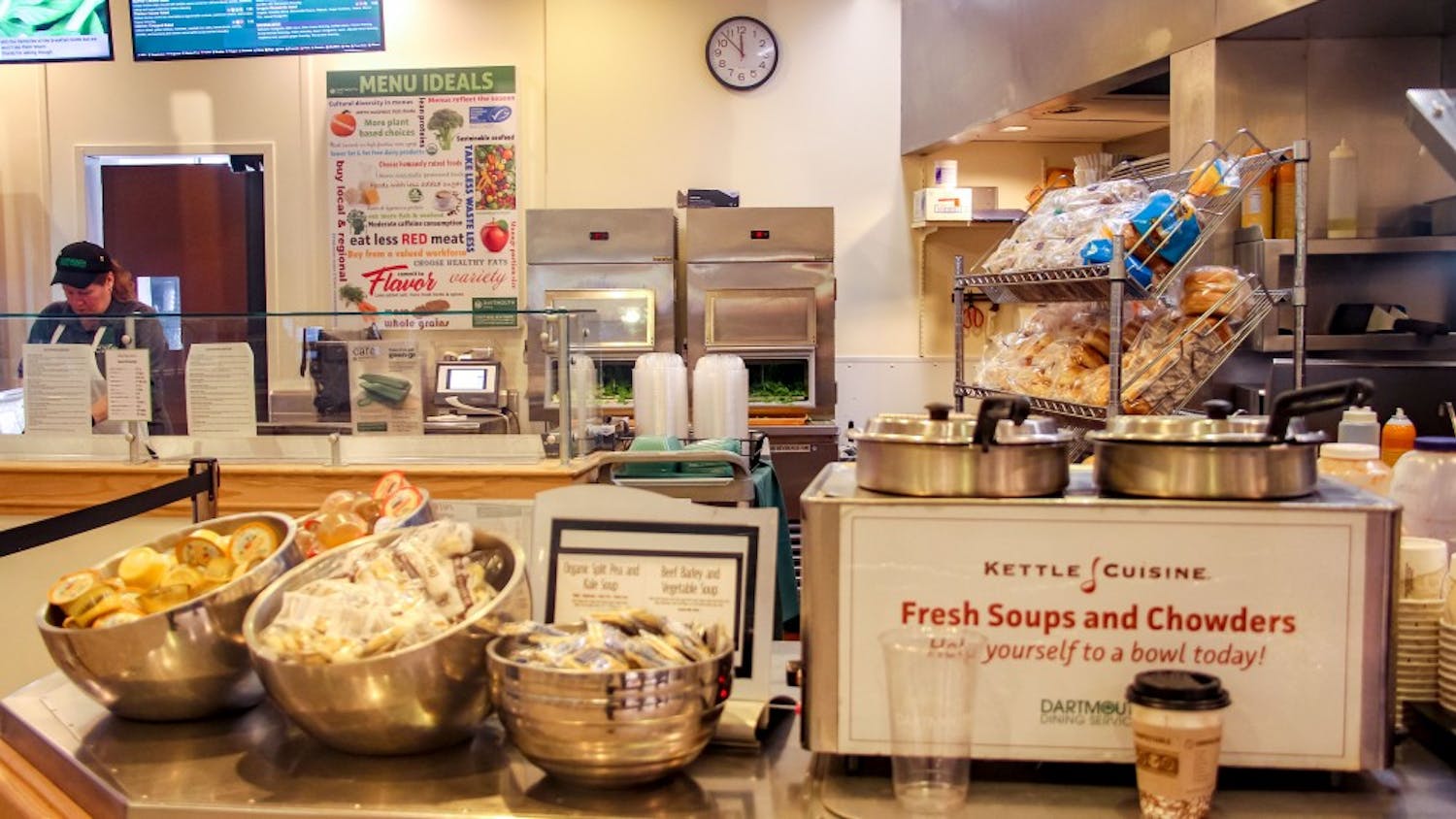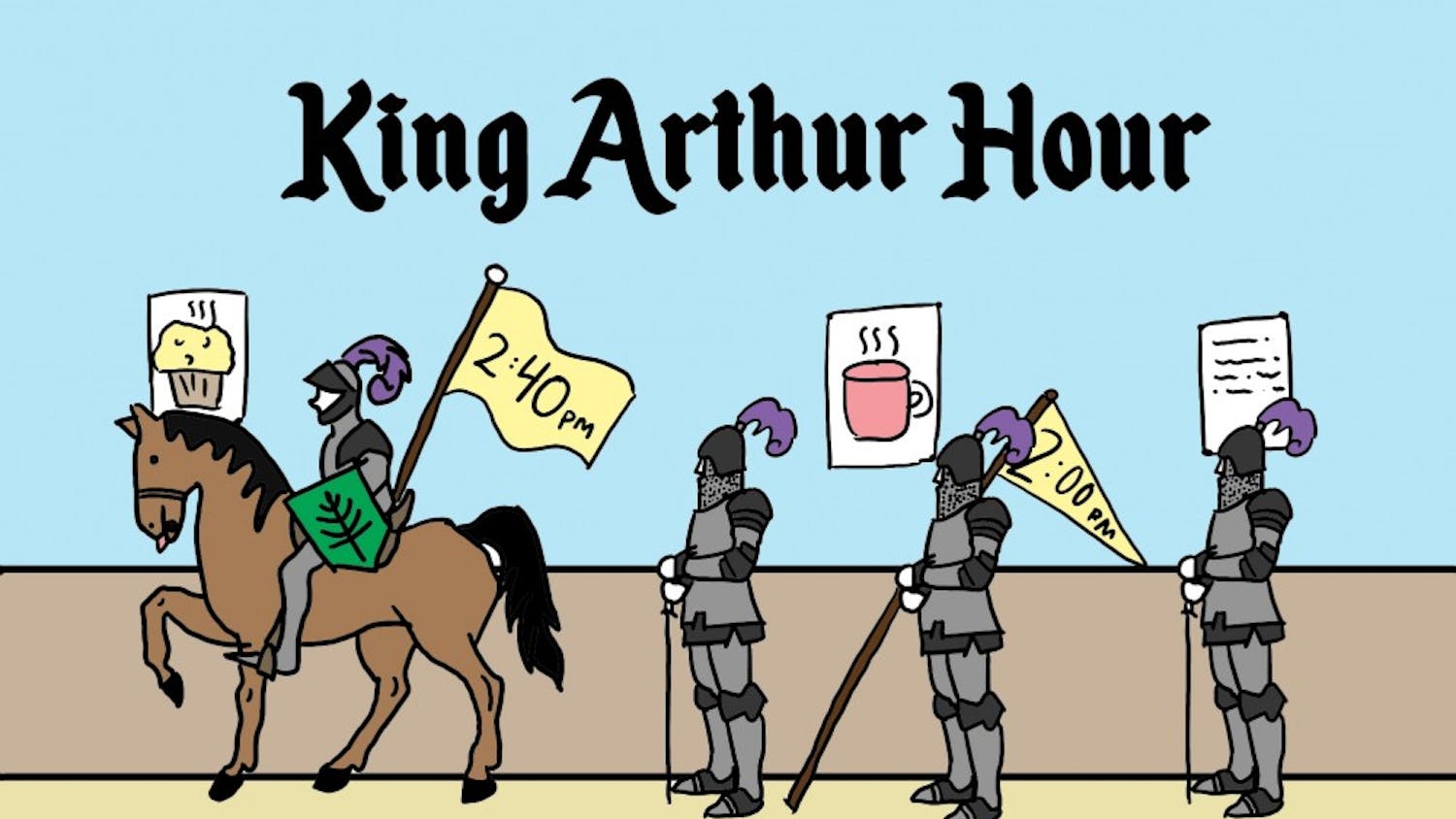As a food writer, a regular contributor to The New York Times and the author of two cookbooks, Priya Krishna ’13 is not your typical “foodie.” Known for her fresh takes on Indian American cuisine, most notably featured in her latest cookbook “Indian(-ish),” Krishna has used her platform to tackle racial inequity in the food industry. Most recently, Krishna made the decision to leave Bon Appétit video over pay equity concerns. Krishna’s first cookbook, published in June 2014 and titled “Ultimate Dining Hall Hacks,” took inspiration from her time as a marketing consultant for Dartmouth Dining Services and her column for The Dartmouth, “The DDS Detective.”
In an interview with The Dartmouth, Krishna discussed her journey from DDS to the world of food media as well as the response to her decision to leave Bon Appétit video.
How and when did you discover your passion for food journalism? Did you always know that this was the career path you wanted to pursue?
PK: I have always been enthusiastic about food, but I never knew it could be a career path until I started writing about food in The Dartmouth in my column that I had — “The DDS Detective.” It was through that column and then just reading food magazines that I realized there was an industry for food media that could be a legitimate career path. It was my junior year that I was starting to think, “How can I make this a reality? How can I enter this industry?” And it turned out it was incredibly hard.
How did your experiences as a columnist writing about dining hall food hacks and as a marketing consultant for DDS help shape your interest in a career in food journalism?
PK: I was just regularly writing about food and I loved it. I loved the idea of being able to describe food, and kind of live and breathe it through my words. I also started, in my classes, doing a lot of academic deep dives in food — I took a bunch of classes that allowed me to write about food. I realized I was interested not only in describing food but exploring the cultural and historical underpinnings of food. And then at DDS, it was an opportunity for me to exist in a food space that is not traditional. When you think of, “I work in food,” working in a dining hall is not a traditional job that people think of. I was able to think outside of the box — it made me think that food writing doesn't just have to be about restaurants. There are so many people and places and institutions that serve food and those are all deserving of being covered too.
In many ways, your work in food media is a celebration of your Indian American identity. How did this identity shape your experience at Dartmouth?
PK: To be honest, I feel like I didn't really think a lot about my [identity]. I think a lot of that was formed from the fact that the school that I went to had a population very similar to Dartmouth’s, where it was a lot of affluent white people, and I think I had just gotten really good at existing in white spaces and code switching. I don't think I realized what a privilege it is to be able to know how to present yourself in a way that is palatable for an affluent audience or to have the privilege to even run in those circles early on in the first place. And I don't think that I did enough examination of my identity and my privilege. I was president of the on-campus Indian dance team, but I feel like that was one of the only ways that I expressed and thought critically about my identity, especially as it related to my race. It really wasn't until I became a professional that I really reckoned with my identity and what it meant to be Indian American.
In a recent article for Bon Appétit, you discussed the topic of whitewashing in recipe writing when it comes to the extra work non-white authors must take on to follow western conventions. What are your thoughts on empowering writers of color to fully express themselves without restricting their work to an ingrained system?
PK: Yeah, I think there are small things that you can do, like stop putting non-English words in italics, not literally “othering” our food and not being so quick to offer substitutions. There's some ingredients that there just are no substitutions for. I think oftentimes we feel like we have to shy away from an ingredient because it's not available at a Whole Foods, but I think that's okay. I think if a dish is popular enough, Whole Foods will get on the bandwagon and start carrying it. But, I hope that people feel empowered to center themselves in their recipes and to not center a white audience in their recipe.
Bon Appétit’s past editor-in-chief’s resignation shed light on deep-rooted issues in food media — food is often showcased through the lens of white chefs and made palatable when celebrated by white critics. Have you felt this experience as a non-white journalist sharing Indian fusion cuisine?
PK: Yeah, certainly. But at the same time, I feel like I have been lucky to have been able to tell a lot of my own stories myself because I'm a journalist. I don't have to rely on others telling those stories for me. I love seeing more cookbook authors, more chefs and more developers taking control of their own narrative and telling their stories themselves rather than letting them be filtered through a white lens.
I understand that you recently left Bon Appétit video due to inequity towards BIPOC. You wrote on Twitter that you hope to find platforms that value you as a “three-dimensional person,” and encouraged BIPOC to recognize their worth. What has the response been to your decision to leave Bon Appétit and your Twitter post?
PK: I’ve overwhelmingly received a lot of really positive comments. There are plenty of Twitter trolls who tell me that I'm just bad at negotiating, but it was one of those things where I just had to call it as I saw it. And I kind of said this in my statement, but not everyone has the privilege to walk away from a paying gig. And I did. And I felt like it was really important to set that example and to tell BIPOC that they are valued and that they are valuable and they need to know their worth. I'm obviously sad about it, but it got to a point where I just didn't think that they were going to be creating a safe and equitable space for BIPOC.
What do you think should be the next steps for media outlets that actively want to promote racial equality, particularly in food writing? What do you hope to do to help promote racial equality in journalism?
PK: I think it starts at the top, putting nonwhite people in charge. I think specifically there need to be more Black people in leadership positions in media, in newsrooms. I think that ultimately the perspective of the leadership is the perspective you're going to see reflected in the pages of the publication — and that is extremely, extremely important. For me, I think I recognize that I am in an incredibly privileged position. Yes, I just left a gig, but I have a platform. I think that the past few months have cemented something I've always felt, which is that I need to use that privilege and platform to elevate the voices of other BIPOC, who perhaps weren't given the same opportunities that I was given. How can I get them their first byline in The New York Times, how can I amplify their voices, cover them, support their popups and support their restaurants? These are the questions I ask myself every day.
What’s next on the horizon for you?
PK: Well I'm currently co-authoring a book with the chef David Chang and that's been really interesting. That's the project I'm trying to wrap up right now. I'm really excited. It's like a home cooking book that really embraces the idea that you don't need to follow a recipe, and that's the best kind of cooking. It's more intuitive and we want to give people a kind of a blueprint for that. I'm not sure exactly what my next big project is. I'm doing a lot of freelancing in between now and then, but I think it's exciting and a little scary.
Moving on to some fun questions. With all of the hacks you wrote for the DDS Detective column during your time here — do you have a favorite DDS dining hack?
PK: One of my absolute favorite ones that will always be one of my most ingenious — this is back when Homeplate existed — is you could get these whole big sweet potatoes and take a baked sweet potato and you'd sprinkle it with butter and brown sugar and you microwave it. And then you crush up Cracklin’ Oat Bran cereal, which was also available at Homeplate. And you sprinkle that over the top and then you top it with vanilla ice cream. It's sort of like a cheater's sweet potato pie.
What’s your favorite DDS location and why?
PK: I mean, I always had a soft spot for Homeplate back in the day, and I really miss it still, but I am a Collis person through and through. I lived for the chocolate chip scones on Fridays in Collis — it was the best part of my week.
Finally, what’s your current favorite recipe to whip up in quarantine?
PK: That’s a good question. I love everything that Yewande Komolafe does and she has this amazing tofu bowl boiled with peanut sauce and served with coconut rice. It's such an easy recipe and it's so delicious.
This interview has been edited and condensed for clarity and length.

![Krishna_Priya (c) Edlyn D'Souza[2] copy.jpg](https://snworksceo.imgix.net/drt/2d45798b-c76b-4b3e-a89a-ad5c4a918405.sized-1000x1000.jpg?w=1000&dpr=2)


